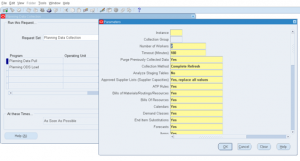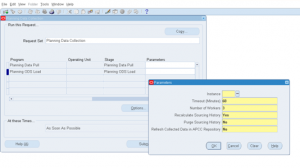Oracle Advanced Supply Chain Planning Overview
Oracle Advanced Supply Chain Planning (ASCP) is the main planning engine Oracle is offering, it has advanced features than the traditional MRP module. Its plans the supply (POs, Requisitions, work orders) based on demand (forecasts, sales orders).
ASCP functional features:
- Global Planning engine: ASCP can plan one inventory organization or all inventory organizations, it can consider all inter-plant supply/demand in one process.
- Mixed modes of manufacturing: ASCP can support discrete, process, project & flow manufacturing in one plan.
- Detail planning: ASCP can do short-term detail planning as well long term aggregate planning in one shot.
- Constraint based planning: Traditional MRP is unconstrained, it plans for the future and raises exceptions if there are any constraints. Constraint based planning can be done by either capacity as a constraint or meeting demand is an constraint.
- Optimzed Planning: Based on buisness rules setup, ASCP can plan the the output to optimize the criteria given by users.
- Multiple versions of Oracle: The planning instance support multiple source ERP instances which are running on a different versions of Oracle (R10.7, R11, R12).
- Plan Simulations: Planners can simulate the changes and review impact without actually making the necessary changes.
Data Collections: Data collections are set of programs that collect the base data (items, boms, routings, onhands, sales orders, purchase orders etc) from source ERP instance into planning instance to perform the supply chain planning.



